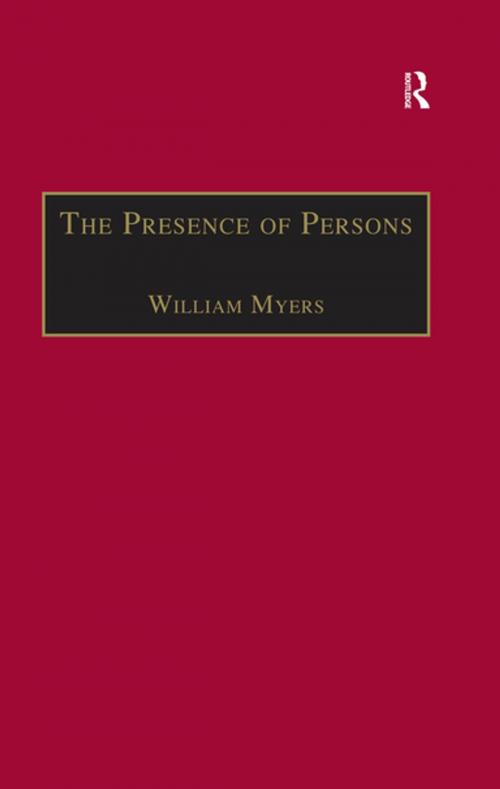The Presence of Persons
Essays on Literature, Science and Philosophy in the Nineteenth Century
Fiction & Literature, Literary Theory & Criticism| Author: | William Myers | ISBN: | 9781351883573 |
| Publisher: | Taylor and Francis | Publication: | December 5, 2016 |
| Imprint: | Routledge | Language: | English |
| Author: | William Myers |
| ISBN: | 9781351883573 |
| Publisher: | Taylor and Francis |
| Publication: | December 5, 2016 |
| Imprint: | Routledge |
| Language: | English |
This book deals with important aspects of nineteenth-century culture, literary, philosophical and scientific, which remain live issues today. It examines in detail the writings of Dickens, Charlotte and Emily Bronte, James Hamilton, Eliot Mill, Arnold, Pater and Newman and makes substantial reference to Hawthorne, Dickinson, Spencer, Carlyle and Hardy, all in the context of the dominant intellectual movements of the nineteenth and twentieth centuries. The thought of Hamilton, Newman, Mill and Spencer is contrasted with that of twentieth-century figures like the philosophers Frege, Husserl, Wittenstein, Merleau-Ponty, the neo-Darwinists Monod and Dawkins and critics like Eagleton and Miller. William Myers argues for a traditional view, deriving largely from Newman, of the unity and autonomy of individual human beings. He suggests that science and literature depend on persons being actively and responsively present to each other, that freedom is always interpersonal, and that in great literature we can discover the workings of this deep mutuality and its enemies.
This book deals with important aspects of nineteenth-century culture, literary, philosophical and scientific, which remain live issues today. It examines in detail the writings of Dickens, Charlotte and Emily Bronte, James Hamilton, Eliot Mill, Arnold, Pater and Newman and makes substantial reference to Hawthorne, Dickinson, Spencer, Carlyle and Hardy, all in the context of the dominant intellectual movements of the nineteenth and twentieth centuries. The thought of Hamilton, Newman, Mill and Spencer is contrasted with that of twentieth-century figures like the philosophers Frege, Husserl, Wittenstein, Merleau-Ponty, the neo-Darwinists Monod and Dawkins and critics like Eagleton and Miller. William Myers argues for a traditional view, deriving largely from Newman, of the unity and autonomy of individual human beings. He suggests that science and literature depend on persons being actively and responsively present to each other, that freedom is always interpersonal, and that in great literature we can discover the workings of this deep mutuality and its enemies.















